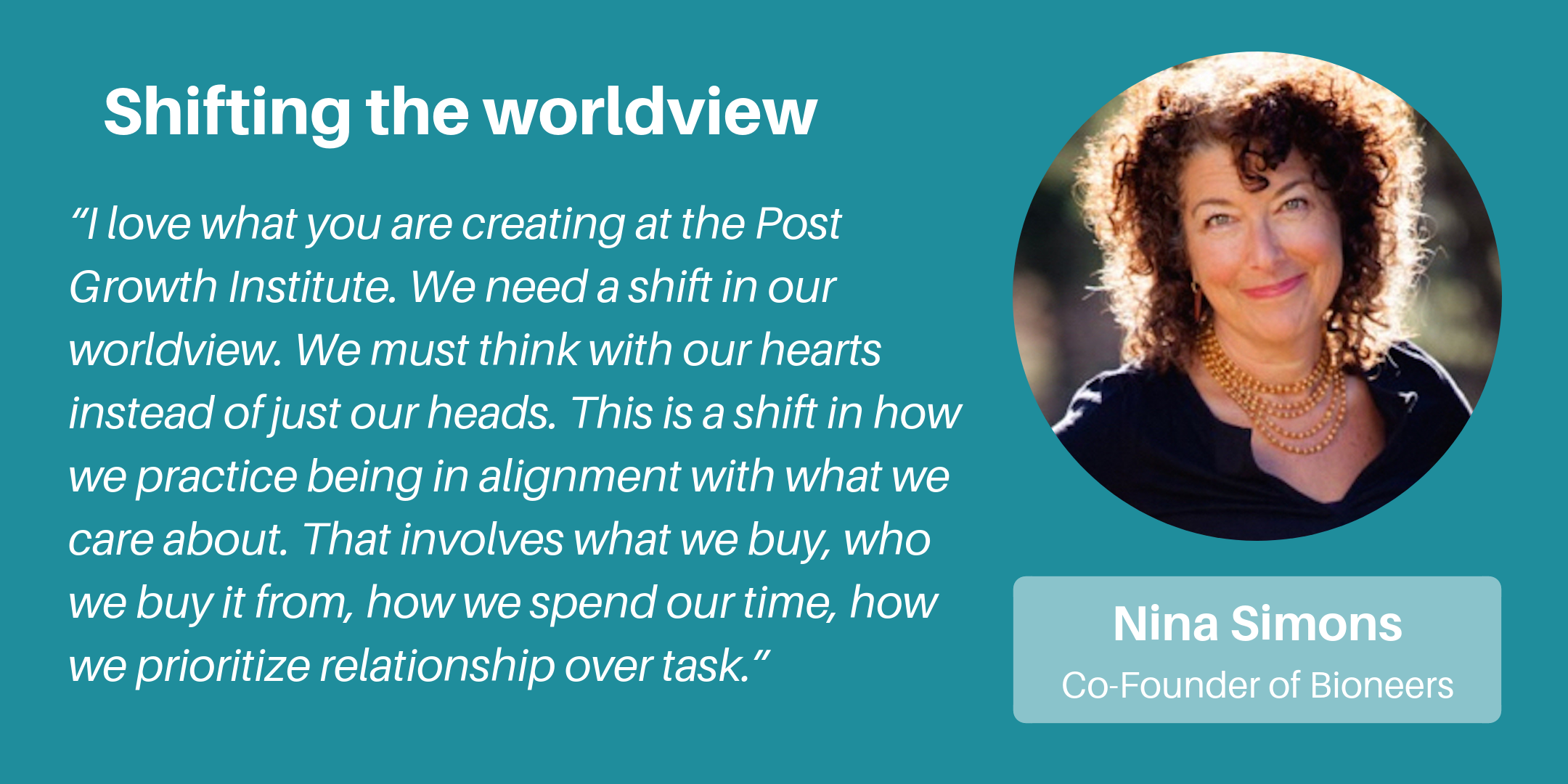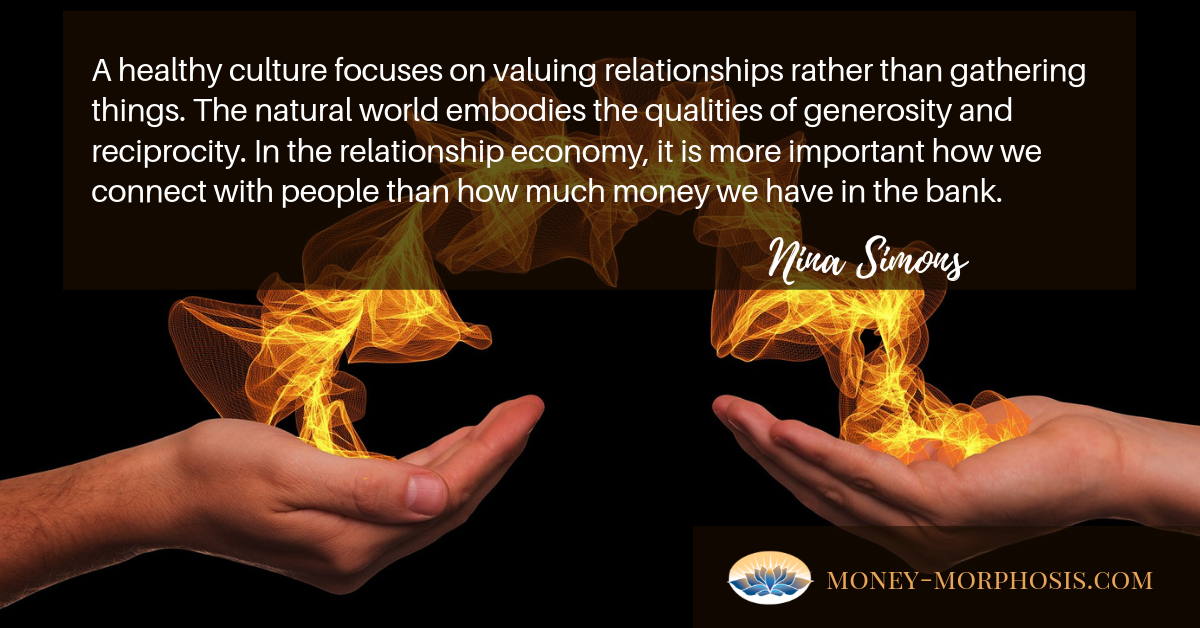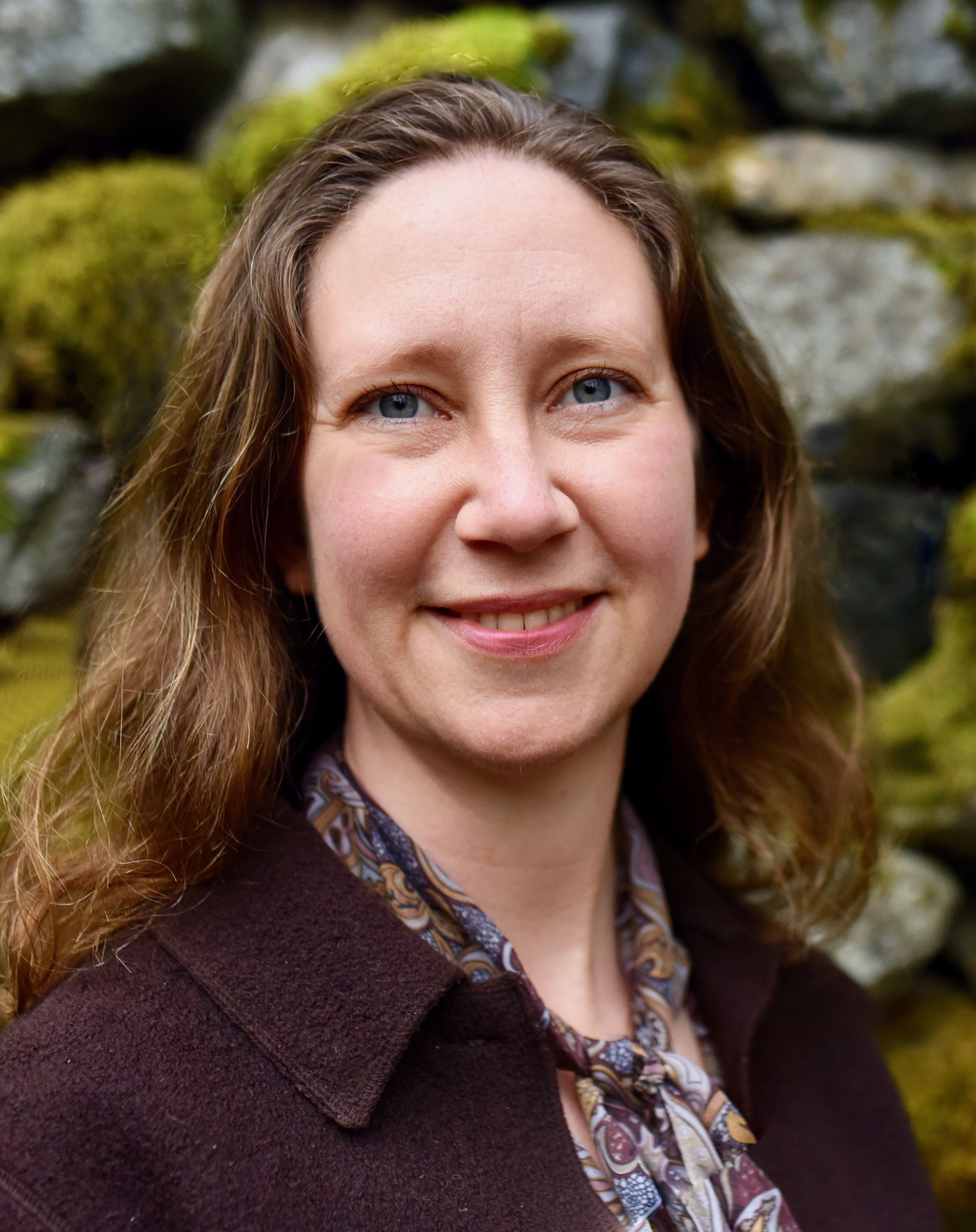Women are at the intersection of spirit, culture, and the economy. We stand at the threshold of possibility, as the feminine rises. Interconnected, we flourish in purposeful leadership and in the return of the feminine in us all.
“Money-Wise Women” guest Nina Simons co-founded the Bioneers Conference thirty years ago with her husband, Kenny Ausubel. Nina is an eco-feminist who integrates the concerns for nature, women, and justice.
Bioneers takes a whole-system approach to bring together innovators in economics, educational, and environmental movements. The Bioneers annual conference in Northern California draws 3-4,000 people, with 20 percent of the audience under 23 years of age. Check out their award-winning podcasts.
Through Bioneers, people are learning about nature at the intersection of diverse movements. Nina says, “According to biomimicry, the places of greatest fertility are the places where two or more ecosystems meet. Those places of intersectionality, those are the hotbed of social innovation.”
For 12 years, Nina co-facilitated the Cultivating Women’s Leadership retreats. She was surprised that most women arrived questioning whether they belonged as a leader. Nina says, “With the kinds of ecological and social challenges we face, we all need to be leaders in this time. Some women have a negative association with being a leader because of inherited definitions. When we invest in relationships first and build a strong relational infrastructure, then our work becomes easier, faster, and more fluid.”
Nina’s newest book, Nature, Culture, and the Sacred: A Woman Listens for Leadership, is refreshing and inspiring. Her poignant poetry is woven with interview transcripts and deep inquiry into sensitive subjects. She highlights many women leaders who have been involved in Bioneers. Her book evokes inner learning and translates it into tools and practices to be more effective in leading the change that is urgently needed. I especially like how she gives specific advice for effective facilitation—like nuggets of gold, these will add great value to my organizing work.
Much of the following post is transcribed from our conversation, as she articulates evocative truths.
As Nina says, “There are many more forms of wisdom to access than only our analytical mind…. For generations, indigenous people around the world have related to all of nature as if it were aware and conscious, tending to the reciprocal relationship. The repression and devaluation of the feminine is reflected in the commodification of the Earth and women’s bodies. The manipulation of balance sheets and financial reporting has been a shell game that doesn’t evaluate long-term benefits or costs. These are predicated on a mechanized world view that doesn’t acknowledge how everything is connected.
“How do we determine what is the best choice based on the true cost behind the pricetag? How do we make more informed choices as consumers and citizens? Shift the way to evaluate, strategize, and decide priorities. We need to recognize that we vote with our dollars. Follow our hearts towards acting on behalf of the things we care most deeply about. We act on behalf of what we love; this is the relationship economy.”
Nina says, “I love what you are doing at the Post Growth Institute. We need a shift in our worldview. We must be thinking with our hearts in harmony with our heads. This is a shift in how we practice being in alignment with what we care about. That involves what we buy, who we buy it from, how we spend our time, how we prioritize relationship over task. We need to be listening from all of our ways of knowing, from our body’s wisdom, and from the wisdom that comes from dreams and from when we walk in the woods.

The section on gender equality and racial justice in Nina’s book is profound, written openly about her transformative experiences. She says, “I am decolonizing my mind and heart from the biases imbued in me by the patriarchal culture. As I was peeling away those layers and knowing more women of color, I began to understand that, in addition to being repressed by gender bias, they also had layers of beliefs embedded by this racialized culture. I became more committed to using my privilege to enliven the leadership of women of color and indigenous women.
“All of the problems can be seen as an imbalance of masculine and feminine. Watching The Burning Times, a film describing the persecution of women, left me with no wonder that I have an inbred fear in my bones of speaking my truth in public. Seven generations of kids saw their mothers and aunties systematically tortured and killed.
“There is a shift in our culture from intent focused on collecting and gathering things to one that values relationships. The natural world embodies the qualities of generosity and reciprocity. In the relationship economy, it is more important how we connect with people than how much money we have in the bank. I see women practicing from a different economic value system, saying if it’s not a win-win then it’s probably not the right thing to do.
“In my inherited definition of leadership, people who lead were given external authority, such as a degree or title. I most admire leaders who are motivated by their inner authority, what they felt most passionate about protecting, defending, or transforming.
“Rupture and repair create relationships that endure. Flexible and resilient relationships are a function of how you approach repairing ruptures. There is a tendency in our culture to polarize, [to determine] who’s right and turn away from something perceived as other. We agree to face towards each other instead of away from each other in difficult times; we can heal relationships—the most meaningful currency of our lives.”
This woman’s enthusiasm is contagious. The wisdom shared at Bioneers has lived on for decades in the hearts and minds of participants. These regenerative leaders have experienced a shift in their worldview from participating in this innovative communion of diverse pioneers.

Recommended Books, Videos, and Web Resources
Rebecca Traister, Good and Mad: The Revolutionary Power of Women’s Anger
Patrisse Khan-Cullors, When They Call You a Terrorist: A Black Lives Matter Memoir
Robin DiAngelo, White Fragility: Why It’s So Hard for White People to Talk About Racism
Alisa Gravitz, “Field Notes from the Green Economy,” a speech from the 2014 Bioneers Conference

Nina Simons is an award-winning social entrepreneur and visionary thinker. In 1990, she co-founded Bioneers with her husband and partner, Kenny Ausubel. As president, she has helped to lead the organization through nearly 30 years of identifying, gathering, and disseminating breakthrough innovations that reveal a positive and life-honoring future that’s within our grasp, today.
Nina’s work currently focuses on writing and teaching about women, leadership, diversity, systems thinking and restoring the feminine in us all. She is the co-founder and co-facilitator of the Cultivating Women’s Leadership trainings. Nina’s newest book is Nature, Culture, and the Sacred: A Woman Listens for Leadership, and she also edited the anthology, Moonrise: The Power of Women Leading from the Heart, which contains 30 essays by over 40 contributors, who collectively help to redefine the leadership landscape. The book is being used by educators in college and graduate-school classrooms and has garnered passionate and positive reviews.
In 1990, Nina joined the entrepreneurial start-up company Seeds of Change as its marketing director and was subsequently promoted to president, helping to grow the company into an emerging national brand in a mere five years. In her capacity as president, Nina oversaw the marketing, operations, and finance departments, while also contributing to strategic business planning and fundraising.
Prior to her tenure at Seeds of Change, Nina was director of strategic marketing at Odwalla, the fresh-juice company, during a time when it was expanding rapidly across the nation. She designed and implemented community-based approaches to marketing that were highly effective in establishing the brand and building customer loyalty.
Visit Nina’s web site at: https://www.ninasimons.com

